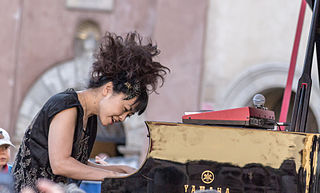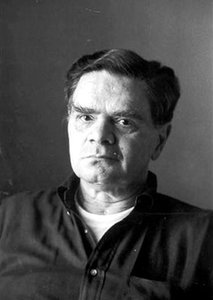A Quote by John Ashbery
The poem is sad because it wants to be yours, and cannot be.
Related Quotes
I think that poetry is an act of celebration, that anytime you're writing a poem, it means that you're celebrating something, even if it's a sad poem, if it's an angry poem, a political poem or anything at all. The fact that you're taking the time and energy to pick up this thing and hold it to the light, and say, "Let's take some time to consider this," means that you've deemed it worthy enough to spend time on - which, in my opinion, is celebrating.
Because I love narrative but am more lyrically inclined, I've learned that if I freight titles with narrative information (the who, what, when, where, why of the poem), I can get to my main interest, which is the language, and where it wants to take me. If I can establish the poem's occasion in the title, then so much the better for my freedom to associate.
A successful poem says what a poet wants to say, and more, with particular finality. The remarks he makes about his poems are incidental when the poem is good, or embarrassing or absurd when it is bad and he is not permitted to say how the good poem is good, and may never know how the bad poem is bad. It is better to write about other people's poetry.
This poem is one of a series, all of them elegiac in intention, and subject to the strange forces of mourning that let loose illogical developments, into impossible configurations of thought. The poem is built of non-sequiturs, because that's what's left in the wake of the death. We cannot follow the dead, whether they are persons or ideas. Instead we remain, but in a situation that, in their absence, makes no sense.
The subject of the poem usually dictates the rhythm or the rhyme and its form. Sometimes, when you finish the poem and you think the poem is finished, the poem says, "You're not finished with me yet," and you have to go back and revise, and you may have another poem altogether. It has its own life to live.
It was early on in 1965 when I wrote some of my first poems. I sent a poem to 'Harper's' magazine because they paid a dollar a line. I had an eighteen-line poem, and just as I was putting it into the envelope, I stopped and decided to make it a thirty-six-line poem. It seemed like the poem came back the next day: no letter, nothing.






































